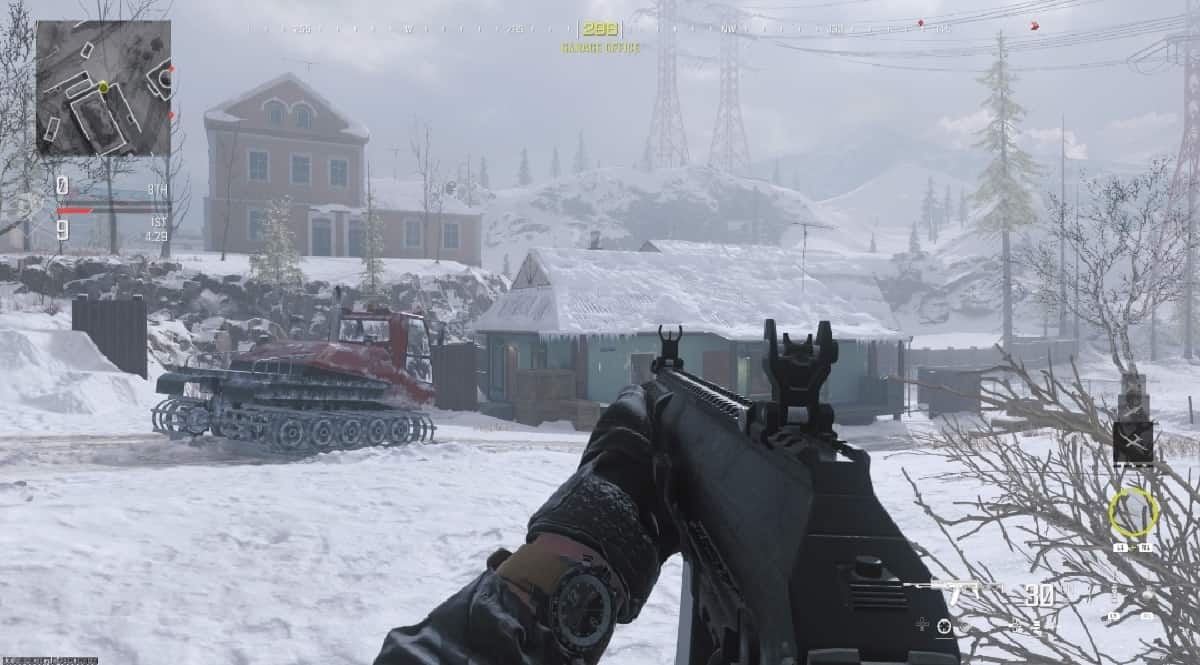Video Gamer is reader-supported. When you buy through links on our site, we may earn an affiliate commission. Prices subject to change. Learn more
Looking for the best aim assist type in MW3? We’ve got just what you need. Aim assist is undoubtedly a delicate feature in Call of Duty titles and for a lot of players, is the perfect helping hand when it comes to multiplayer battles. Choosing the right type can dramatically impact your performance, turning you from a jittery recruit to a laser-focused sharpshooter.
However, with three distinct options – Default, Precision, and Focusing – the path to perfect aim can sometimes feel like you’re navigating a minefield. But fear not, soldier, for in this guide we’ll be going over the best aim assist type in MW3 that’ll enhance your gameplay to a whole new level.

Best aim assist type in MW3
- Default – This is the traditional aim slowdown near target used in Modern Warfare games.
- Precision – This is a strong aim slowdown that starts after you’ve aimed closer to a target. It’s also often the most used type for accurate players.
- Focusing – This comes with a strong aim slowdown that kicks in when you narrowly miss a target.
Aim assist is usually turned automatically for most Call of Duty games. Having it on allows the camera to slow down when the crosshair is near an enemy. So let’s break down each of these aim assist types to help you decide which is best for you in Modern Warfare 3.
Default -The familiar friend
Default is the classic aim assist that offers a familiar and comfortable experience for most players (myself included). It provides a mild slowdown near your target, subtly nudging your reticle towards its center mass. This makes it a great choice for beginners and even veteran players who prefer a more organic aiming experience. It allows for precise micro-adjustments and rewards skillful tracking. However, its gentle nudge can be frustrating in fast-paced close-quarters encounters, where split-second reactions are crucial in maps like Rust and Terminal.
Precision – A laser focus
Precision amplifies the aim slowdown to a near-magnetic attraction. Once your reticle nears your target, it practically snaps onto them, making headshots and precise bursts a breeze. This is ideal for players who prioritize pinpoint accuracy, especially at mid-to-long ranges. It shines with sniper rifles and controlled bursts from assault rifles, offering near-pixel-perfect precision. But the strong pull can be disorienting in close quarters, sometimes dragging your reticle off target if enemies move erratically. It also hinders quick target acquisition, making it less forgiving for players who rely on reflexes and flick shots.
Focusing – A dynamic approach
Focusing provides you with a middle ground, dynamically adjusting its pull based on your reticle’s proximity and the enemy’s movement. It starts gentle, similar to Default, but intensifies as your reticle gets closer, offering a smooth transition from subtle nudges to precise lock-on. This makes it versatile, and it’s why I tend to use it in bigger maps like Afghan because it adapts to different situations and playstyles. It’s excellent for players who want some assistance but still value their own aiming skills. However, its dynamic nature can be unpredictable at times, potentially throwing off your aim if you’re used to a more consistent pull. So like all aim assist types, this one requires a bit of adaptation to master its nuances.
Best pick a weapon first
The best aim assist type isn’t a one-size-fits-all solution. It also depends heavily on your preferred weapon, playstyle, and skill level. If you enjoy using snipers, Precision’s laser focus excels here, maximizing accuracy for those crucial headshots. If you love ARs, Focusing’s adaptability shines, offering both precision at distance and smooth tracking for closer encounters. And if you’re into SMGs, Default’s gentle nudges provide more freedom for quick reactions and flick shots, crucial in fast-paced situations.
For more helpful guides on Modern Warfare 3, see our MW3 zombies tips and tricks, the best Wonder Weapons to use right now or even see expected MW3 Season 2 release date and prepare yourself for all the new content that’s coming!
Modern Warfare 3 aim assist FAQs
Can aim assist be turned off in MW3?
Yes, players can turn off aim assist in MW3 by adjusting the settings in the options menu.
Is aim assist considered cheating in MW3?
No, aim assist is not considered cheating in MW3. It’s a feature built into the game that is designed to help players with accuracy and improve the overall gameplay experience.

